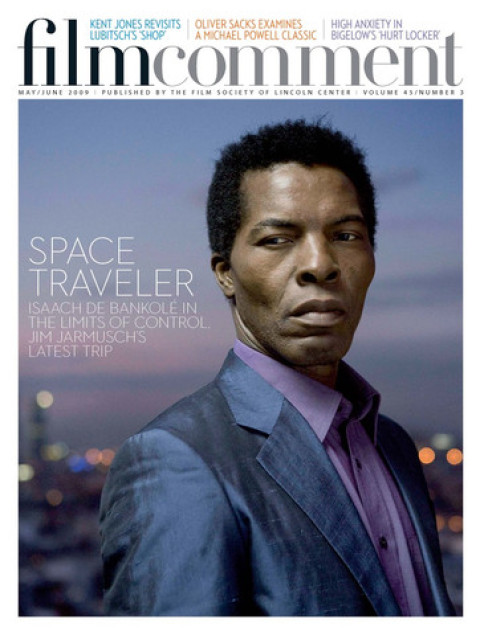
Early on a frigid Valentine’s morning in some desolate village within the Ontario hinterland, talk radio DJ Grant Mazzy (Stephen McHattie) is assailed by an unidentified woman while driving to work. She slaps his car window and utters something indistinct before slipping right back into the wintry wee-hour darkness. In a movie founded on the precarious shortcomings of language, this inciting incident with a seemingly urgent yet indecipherable apparition is all too apt. “Trauma is a news photo without a caption,” Mazzy will declare on the air, paraphrasing no less highbrow a source than Roland Barthes for his audience of rural commuters. In doing so he gets to the heart of what drives the most enduring horror movies, even those as cerebral and discreet as Pontypool: true terror flourishes in the baleful absence of explanation.
Adapted by Tony Burgess from his own sprawling, baroque 1998 novel Pontypool Changes Everything, from which only the bare essence has been extracted, this wildly imaginative siege drama/pseudo-zombie flick, confined almost entirely within a radio broadcast studio, makes good on the promise of Canadian maverick Bruce McDonald’s preceding feature The Tracey Fragments (07). Where Tracey fractured and multiplied the moving image, Pontypool dismantles talk. It resurrects William Burroughs’s old dictum about language as virus and puts it to work. When Mazzy and his two colleagues receive alarming field reports about nattering hordes surrounding a doctor’s office for no discernible reason, the calls themselves may act as carriers of the verbally communicable disease that’s apparently afflicted the attackers. McDonald, aided to a considerable degree by long-time cinematographer Miroslaw Baszak, wrings potent tension from the most spartan of scenarios, along with spasms of increasingly unnerving humor. “Move or die,” the motto of McDonald’s signature road movies Roadkill (89) and Hard Core Logo (96), is here inverted, as his protagonists hole up for their lives in the studio, the self-proclaimed “basement of the world.”

Pontypool gives us precisely the apocalypse we’ve earned, one that ends with neither a bang nor a whimper but rather a cacophonous babble, a plague made airborne through our cries of fear or attempts to warn. Communication itself is the killer. Perhaps more than anything else in McDonald’s oeuvre, the premise most closely relates to Videodrome, exchanging David Cronenberg’s viral images for viral words, corporeal mutation for verbal aphasia, McLuhan for Wittgenstein. And just as Max’s susceptibility to infection from Videodrome’s crudely transmitted torture porn is contingent on his instinctive, libidinous response, so does the contagion that spreads from tongue to tongue in Pontypool depend on its hosts’ comprehension. At least that’s the theory put forward by the film’s resident, incongruously chipper doctor/explicator (Hrant Alianak), one of the genre tropes playfully incorporated into this otherwise oddball addition to the horror canon.
Yet for those of us trying to follow Pontypool’s errant narrative, comprehension remains elusive. The movie recklessly dashes off intriguing but incompletely explored ideas left and right, most conspicuously the rumor that the English language itself may be responsible for transmitting this disease that threatens to colonize our minds—just as it’s historically attempted to colonize the consciousness of French Canada. But this procession of teasing allusion helps to buoy Pontypool as much as the carefully calibrated claustrophobia of its mise en scène, the striking, subtly developed characters, or the superb performances, especially that of McHattie, who elegantly contrasts Mazzy’s cocksure “take no prisoners” shtick with his mounting panic and bouts of facial paralysis. It is when our grasping for digestible concepts, clear causality, or anything resembling a resolution is as thwarted as the characters’ struggle to articulate or take action, that we’re in the best position to absorb Pontypool’s full impact, as well as share in the terror. “We were never really making sense,” Mazzy gleefully declares near the cataclysmic finale. It’s as if McDonald and his colleagues shrugged in agreement and replied, “So why start now?”








